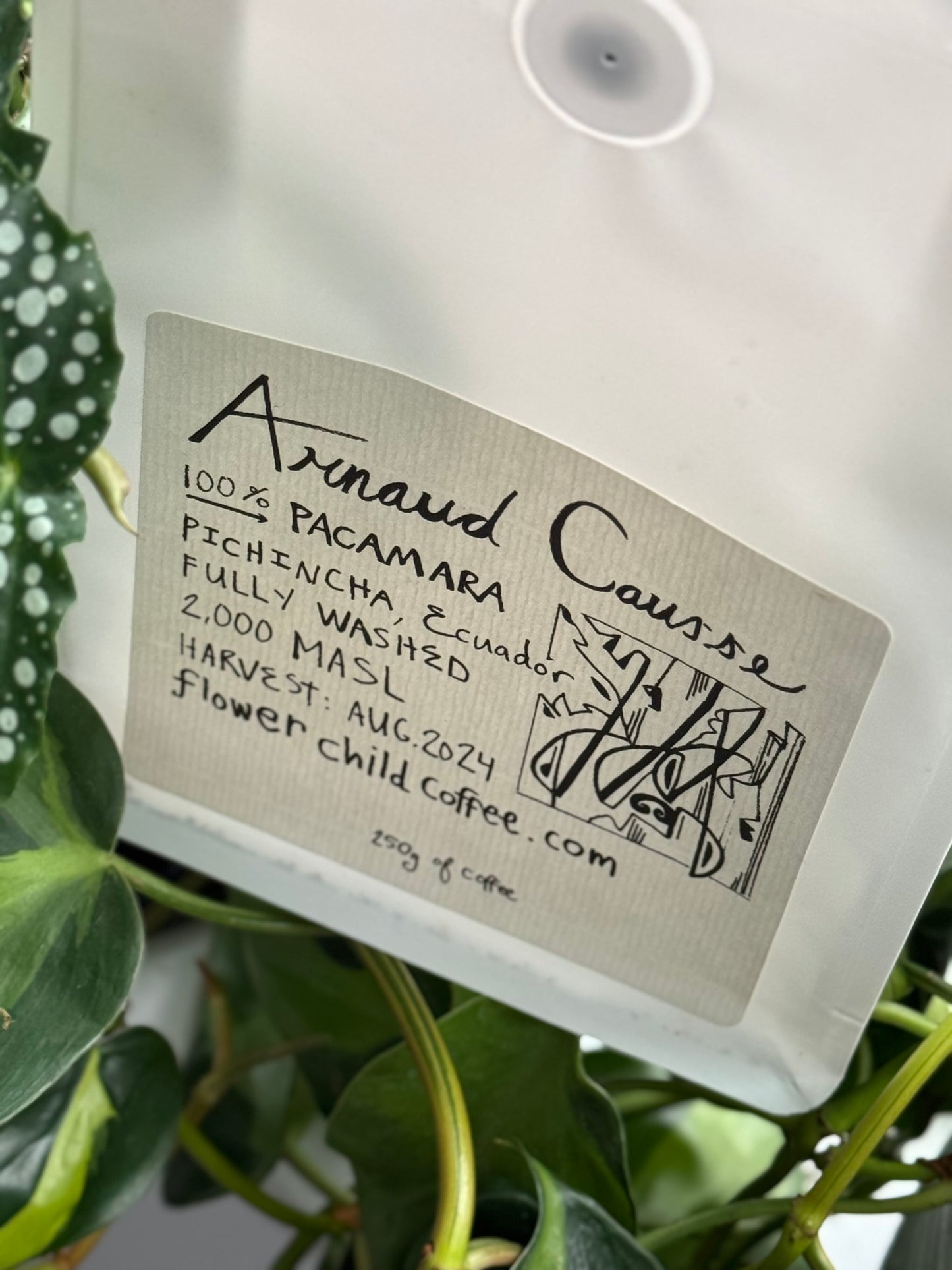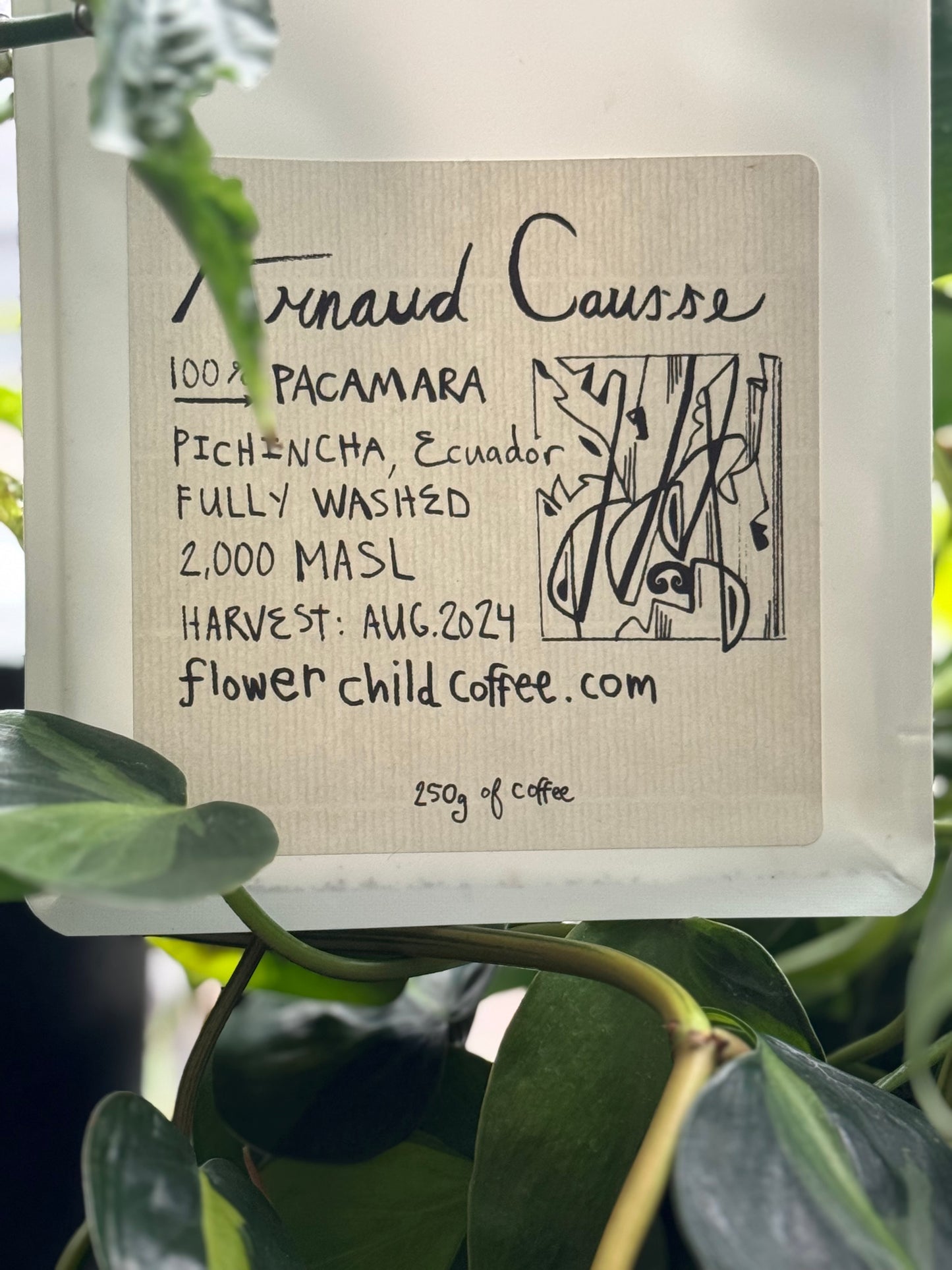25/02 #1 - Arnaud Causse - Flower Child (Oakland, CA)
25/02 #1 - Arnaud Causse - Flower Child (Oakland, CA)
Couldn't load pickup availability
Subscription Add-On
This is a subscription add-on! It will ship with your next subscription. We take it out of the freezer the day before we ship.
Region
Pichincha, Ecuador
Process & Variety
Washed Pacamara
Roaster Notes
Pomegranate, botanical/floral, red tea
Dates
Roasted: 01/27/2025
Frozen: 02/11/2025
Brew tips
Prestin recommends a 1:17 ratio with very hot water (near boiling) and a coarse grind.
More info
Aranaud Causse and Sebastian Garcés have a special plot of Pacamara that remains to be one of our favorite representations of this variety. This cup is sparkling with red fruit notations of raspberry, cranberry and pomegranate. The body is light with a long finish of florals and red tea leaves. This expression of Pacamara in the brew is so incredibly unique to Terrazas del Pisque. The cup is bright, crisp and full of dried cherry sweetness.
Finca Terrazas del Pisque is located in Pichincha, Quito, Ecuador, and is managed by Sebastian Garcés, alongside Arnaud Causse. The farm consists of 39 hectares of land, with 17 of those hectares dedicated to growing coffee. It sits at an elevation of 2,080 meters, and has around 10,000 coffee trees in production, including: Red & Yellow Caturra, Pacamara, Las Tolas, Bourbon, Java and Sidra.
Sebastian picks the ripest of cherries for the Washed lots, floats them to remove over/under-ripes and then washes them with clean water. After rinsing, the coffee is de-pulped and left to ferment in tanks for 48 hours. The coffee is then dried on raised beds for 15 – 18 days, depending on the weather.
With a unique approach to coffee growing in Ecuador, Finca Terrazas del Pisque has established itself as an incubator of elusive and exotic coffee varieties. Their regenerative agriculture, a focus on “leaving nature to do its job” and a full stop on chemical inputs, have greatly benefitted consistency and flavor crafting.
In that sense, you can tell the amazing job Sebastian Garcés and Arnaud Causse do, achieving a sustainable ecosystem along the equator line. Some of the strategies they have implemented at farm level are chickens to help combat larvae, Pelibuey sheep that help graze and fertilize (but also avoid eating the coffee cherries), and pollinating bees. On top of that, they create their own charcoal from fallen branches or pruned trees, which they grind and return to the soil.
Pacamara is is compact plant with big cherries. The shrub grows best at higher elevations. Pacamara is not homogeneous; plants are not stable from one generation to the next. This can be difficult for farmer's to deal with given the varying quality coming out of a growing nursery. It's genetic make up comes from the Bourbon-Typica family. Pacamara is a cross of Maragogipe and Pacas. It is very succeptible to coffee leaf rust whilst capable of exceptional cup quality.
Share



